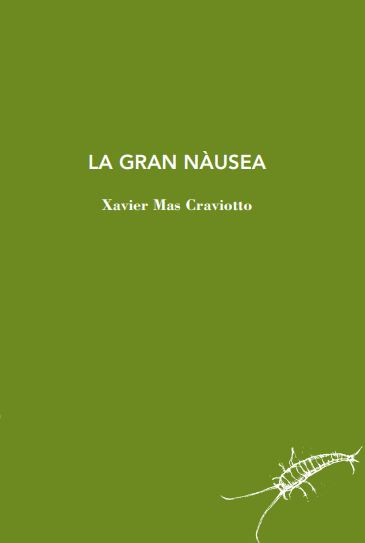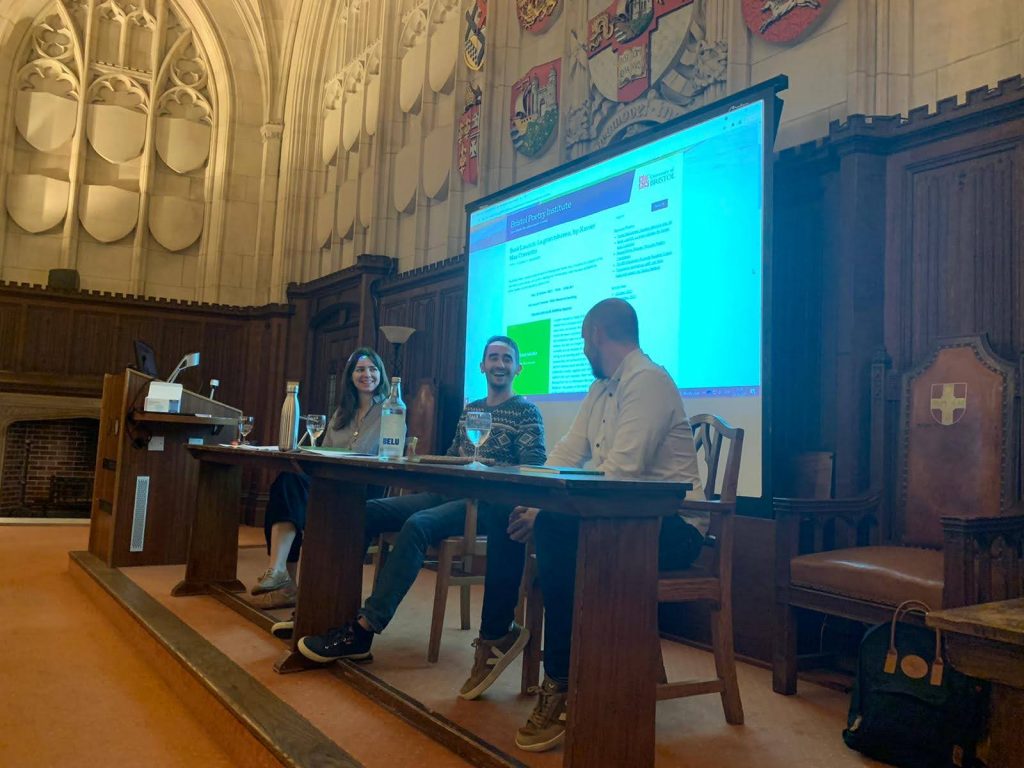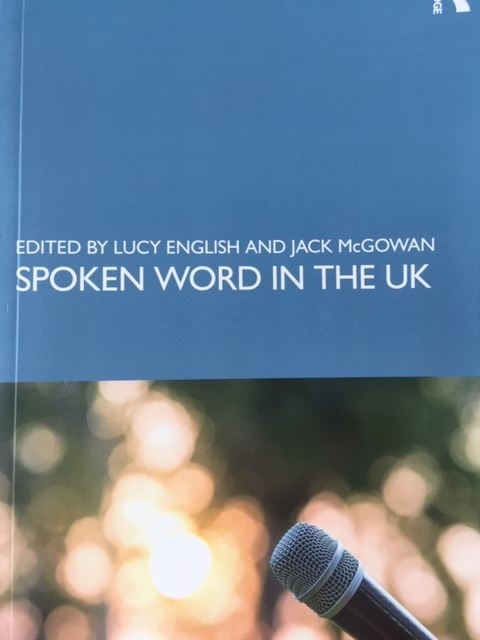The Bristol Poetry Institute looks forward to hosting poet Xavier Mas Craviotto for a launch of his new book La gran nàusea. Join us for a reading and conversation with the poet facilitated by James Hawkey and introduced by Joanna Crow.
Mon, 25 October 2021 | 18:00 – 19:00 BST
Old Council Chamber, Wills Memorial Building
Free and open to all, booking required

La gran nàusea is a book of poems that delves into a process of exhaustion and weariness. An erosion that consumes the bonds between consciousness and reality, and inevitably leads not only to a feeling of tedium, but also to a hyperconsciousness of unreality and an invasion of strangeness. Taking as its starting point the symbol of the nausea that can be found in Jean-Paul Sartre’s famous novel and also in some of Nietzsche’s works, together with other authors like Lars Svendsen, Peter Handke, Byung-Chul Han or filmmakers like Ingmar Bergman, the poems of this book rummage in the apathy raised in a world of demolished senses and wasted meanings, in the deep malaise that we have inside when we feel close the presence of an invasive, compact and solid void. La gran nàusea is a book about the (capital-V) Void. A Void that, like from the nausea to the vomit, starts being an inner and intangible discomfort and ends up being an outer and material reality; a deified Void that we liturgically venerate; a Void that goes from the individual to the community; a Void that in the beginning of the book pulls down a house and at the end of the book devours a whole city.
La gran nàusea is divided in three parts —repleció, antiperistalsi and èmesi—whose titles correspond to the three phases of vomit. In these poems, the reader will embark on a poetic journey with an I and a You that struggle to understand not only each other but also a world that fades away right before their eyes. A world in which anything makes sense because words have been worn away and have lost their capability of evoking and attributing meanings and identities.
 Xavier Mas Craviotto (Navàs, Catalonia, 1996) is currently the Catalan lector at the University of Bristol. He studied Catalan Philology in Universitat de Barcelona and a postgraduate degree in Language Consultancy and Publishing Services at the same university. He also collaborated for two years with The Research Centre for Sociolinguistics and Communication (CUSC-UB). He is one of the founders of Com ho diria, an online platform focused on the use of slang amongst young Catalan speakers. When he was 17, he was finalist in the Jordi Sierra i Fabra Literary Award in Spain and Latin America, and from then on he has won around twenty literary awards of narrative and poetry. He has published the novel La mort lenta (‘The slow death’, 2019), with which he won the Documenta Award 2018, and the book of poems Renills de cavall negre (‘Black horses’ neighs’, 2019), awarded with Certamen Art Jove Salvador Iborra Prize. He has participated in several poetry readings and in some collective books of short stories along with other Catalan authors.
Xavier Mas Craviotto (Navàs, Catalonia, 1996) is currently the Catalan lector at the University of Bristol. He studied Catalan Philology in Universitat de Barcelona and a postgraduate degree in Language Consultancy and Publishing Services at the same university. He also collaborated for two years with The Research Centre for Sociolinguistics and Communication (CUSC-UB). He is one of the founders of Com ho diria, an online platform focused on the use of slang amongst young Catalan speakers. When he was 17, he was finalist in the Jordi Sierra i Fabra Literary Award in Spain and Latin America, and from then on he has won around twenty literary awards of narrative and poetry. He has published the novel La mort lenta (‘The slow death’, 2019), with which he won the Documenta Award 2018, and the book of poems Renills de cavall negre (‘Black horses’ neighs’, 2019), awarded with Certamen Art Jove Salvador Iborra Prize. He has participated in several poetry readings and in some collective books of short stories along with other Catalan authors.
 Joanna Crow is Associate Professor in Latin American Studies. She has worked at the University of Bristol since 2006 and is currently Head of Subject for the Department of Hispanic, Portuguese and Latin American Studies. Her research focuses on Latin American cultural and intellectual history. She is particularly interested in histories of race, racism, and anti-racism. Her forthcoming book with Palgrave Macmillan is a study of transnational networks and debates about indigenous rights in early twentieth century Chile and Peru.
Joanna Crow is Associate Professor in Latin American Studies. She has worked at the University of Bristol since 2006 and is currently Head of Subject for the Department of Hispanic, Portuguese and Latin American Studies. Her research focuses on Latin American cultural and intellectual history. She is particularly interested in histories of race, racism, and anti-racism. Her forthcoming book with Palgrave Macmillan is a study of transnational networks and debates about indigenous rights in early twentieth century Chile and Peru.
 James Hawkey is Catalan Studies Coordinator at the University of Bristol. His research is focused on Catalan Linguistics and Cultural Studies. He has worked at the University of Bristol since 2014, prior to which he held positions at the Sorbonne University in Paris, as well as the Centre for Catalan Studies at Queen Mary, University of London.
James Hawkey is Catalan Studies Coordinator at the University of Bristol. His research is focused on Catalan Linguistics and Cultural Studies. He has worked at the University of Bristol since 2014, prior to which he held positions at the Sorbonne University in Paris, as well as the Centre for Catalan Studies at Queen Mary, University of London.




 Pete Bearder is a spoken word poet, comic and musician whose work has been featured on BBC radio 4, The World Service and Newsnight. He is the former National Poetry Slam Champion and has performed around the world with organisations such as the British Council. His groundbreaking book, ‘Stage Invasion: Poetry and the Spoken Word Renaissance’ explored the history and practice of spoken word. ‘This is the book we have all been waiting for as we live through an unprecedented growth in the popularity and vitality of the poetry that revitalises the air we breathe.’ Ian McMillan.
Pete Bearder is a spoken word poet, comic and musician whose work has been featured on BBC radio 4, The World Service and Newsnight. He is the former National Poetry Slam Champion and has performed around the world with organisations such as the British Council. His groundbreaking book, ‘Stage Invasion: Poetry and the Spoken Word Renaissance’ explored the history and practice of spoken word. ‘This is the book we have all been waiting for as we live through an unprecedented growth in the popularity and vitality of the poetry that revitalises the air we breathe.’ Ian McMillan. Helen Johnson is a principal psychology lecturer at the University of Brighton and Co-Director for the University’s “
Helen Johnson is a principal psychology lecturer at the University of Brighton and Co-Director for the University’s “ Jacob Sam-La Rose is a poet, educator and editor, deeply invested in supporting emerging poets and writers. He’s been responsible for Barbican Young Poets, the Spoken Word Education programme and Shake the Dust (youth slam and poetry-in-education CPD). His work has been translated into Portuguese, Latvian, French and Dutch, and his collection ‘Breaking Silence’ is studied at A’ level.
Jacob Sam-La Rose is a poet, educator and editor, deeply invested in supporting emerging poets and writers. He’s been responsible for Barbican Young Poets, the Spoken Word Education programme and Shake the Dust (youth slam and poetry-in-education CPD). His work has been translated into Portuguese, Latvian, French and Dutch, and his collection ‘Breaking Silence’ is studied at A’ level.
 Xavier Mas Craviotto (Navàs, Catalonia, 1996) is currently the Catalan lector at the University of Bristol. He studied Catalan Philology in Universitat de Barcelona and a postgraduate degree in Language Consultancy and Publishing Services at the same university. He also collaborated for two years with The Research Centre for Sociolinguistics and Communication (CUSC-UB). He is one of the founders of
Xavier Mas Craviotto (Navàs, Catalonia, 1996) is currently the Catalan lector at the University of Bristol. He studied Catalan Philology in Universitat de Barcelona and a postgraduate degree in Language Consultancy and Publishing Services at the same university. He also collaborated for two years with The Research Centre for Sociolinguistics and Communication (CUSC-UB). He is one of the founders of  Joanna Crow is Associate Professor in Latin American Studies. She has worked at the University of Bristol since 2006 and is currently Head of Subject for the Department of Hispanic, Portuguese and Latin American Studies. Her research focuses on Latin American cultural and intellectual history. She is particularly interested in histories of race, racism, and anti-racism. Her forthcoming book with Palgrave Macmillan is a study of transnational networks and debates about indigenous rights in early twentieth century Chile and Peru.
Joanna Crow is Associate Professor in Latin American Studies. She has worked at the University of Bristol since 2006 and is currently Head of Subject for the Department of Hispanic, Portuguese and Latin American Studies. Her research focuses on Latin American cultural and intellectual history. She is particularly interested in histories of race, racism, and anti-racism. Her forthcoming book with Palgrave Macmillan is a study of transnational networks and debates about indigenous rights in early twentieth century Chile and Peru. James Hawkey is Catalan Studies Coordinator at the University of Bristol. His research is focused on Catalan Linguistics and Cultural Studies. He has worked at the University of Bristol since 2014, prior to which he held positions at the Sorbonne University in Paris, as well as the Centre for Catalan Studies at Queen Mary, University of London.
James Hawkey is Catalan Studies Coordinator at the University of Bristol. His research is focused on Catalan Linguistics and Cultural Studies. He has worked at the University of Bristol since 2014, prior to which he held positions at the Sorbonne University in Paris, as well as the Centre for Catalan Studies at Queen Mary, University of London.